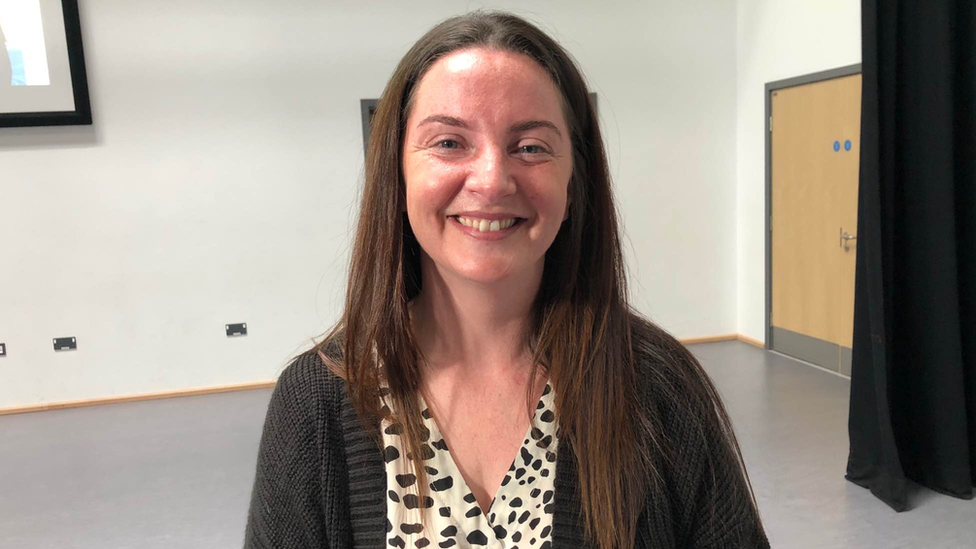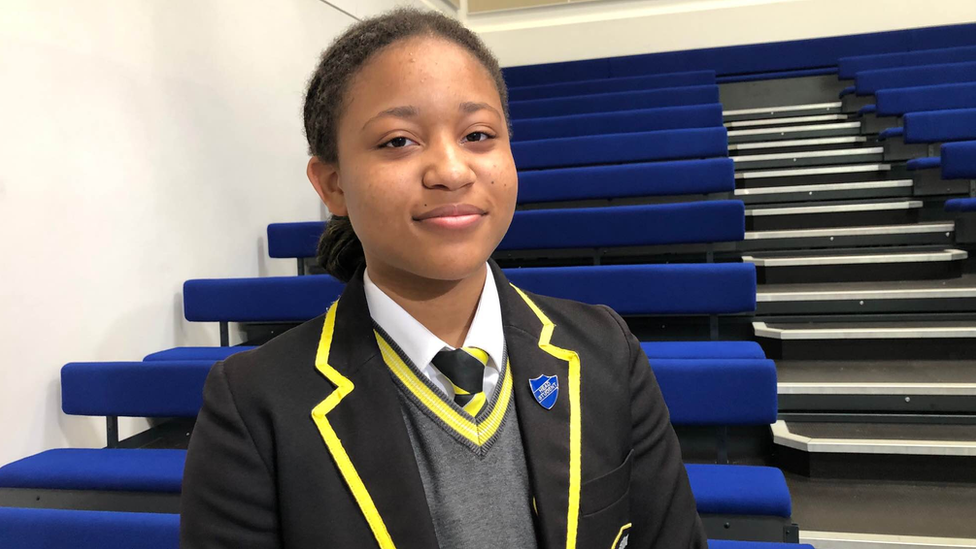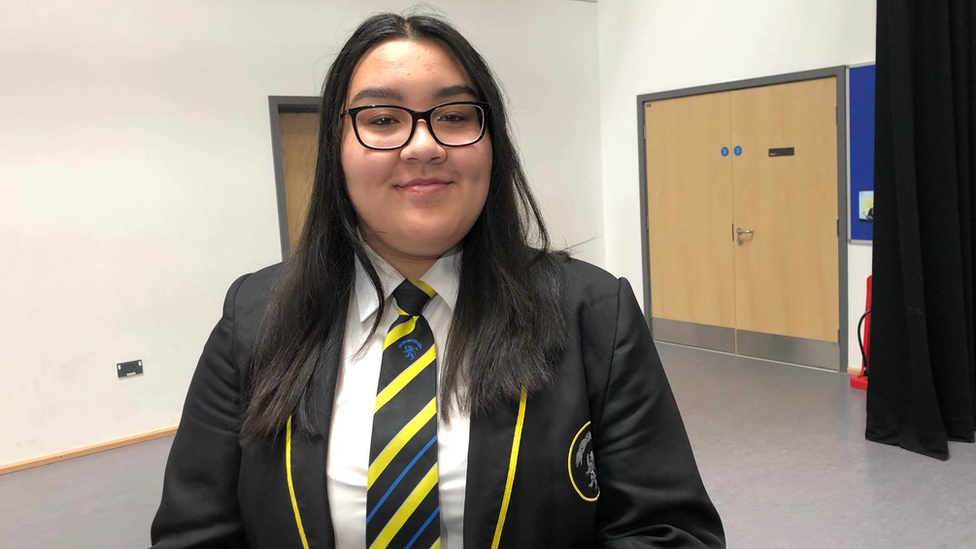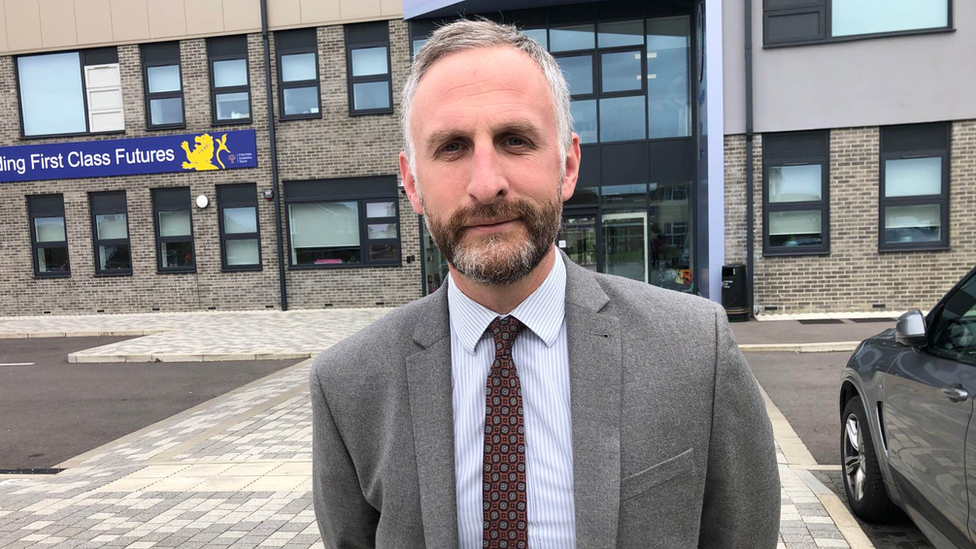Bedfordshire youth workers help to 'call out' harassment in school talks
- Published

Young persons worker, Jo Jupp, said talks aim to raise awareness about unacceptable behaviour
Specialist youth workers are visiting schools across a county to talk about how to recognise and stop harassment.
People from the Luton All Women's Centre also visit colleges and sixth forms to educate students about misogyny, sexual abuse and consent.
It is hoped that by getting students to call out behaviours early, it will stop bigger crimes in the future.
Putteridge High School in Luton said it was important to talk about the issues from an early age.
The school's Year 11 students attended special assemblies about recognising harassment and how and when to report it.

Gabriella,15, said to "get people refocused on things that they shouldn't be doing is really important"
Fifteen-year-old Gabriella, said: "To bring it back and get people refocused on things that they shouldn't be doing is really important."
Molly, 16, added: "It is quite an in-depth topic to speak about but if you acknowledge it and bring it forward and report things it's much easier."

Molly, 16, said people have got to "acknowledge" harassment
The talks are part of Bedfordshire Police's wider Safer Streets Violence Against Women and Girls project, managed by the county's police and crime commissioner, external and supported by about £730,000 of Home Office funding.
They aim to raise awareness about unacceptable behaviour and start conversations that challenge ideas around the acceptability of sexual harassment in public places.
Jo Jupp, from the centre, said they hoped by getting young people to "question their behaviours and call out their friends", more serious offences can be prevented in the future.
"Sometimes you get the message that they are saying that little things are OK," she said.
"But we are highlighting to them that even though they are little [things] and may be insignificant to them, they actually can escalate to bigger things.
"I don't think people think that things like whistling and cat calling are a big deal, they say they are only giving a compliment.
"So we are saying it can escalate and if you call them out at an earlier point then hopefully they won't go on to bigger things."

Deputy head teacher, Jeremy Heath, said there are many influencers online who are purporting acts of violence or aggression towards women
Putteridge's deputy head teacher, Jeremy Heath, said it was important to start talking to children about the issue from a very early age.
"Sadly we have many influencers online who are purporting acts of violence or aggression or misogynistic views," he said.
"We need to ensure that we send a positive message to our young children so they act accordingly within our communities.
"The online world certainly has its dangers but we need to ensure that we upskill our children to ensure they will be able to keep not only themselves safe but their communities and their friends safe also."

Find BBC News: East of England on Facebook, external, Instagram, external and Twitter, external. If you have a story suggestion email eastofenglandnews@bbc.co.uk